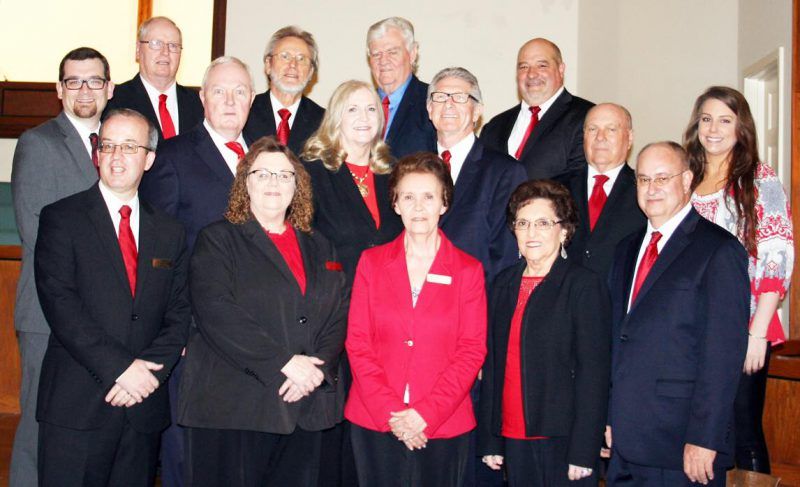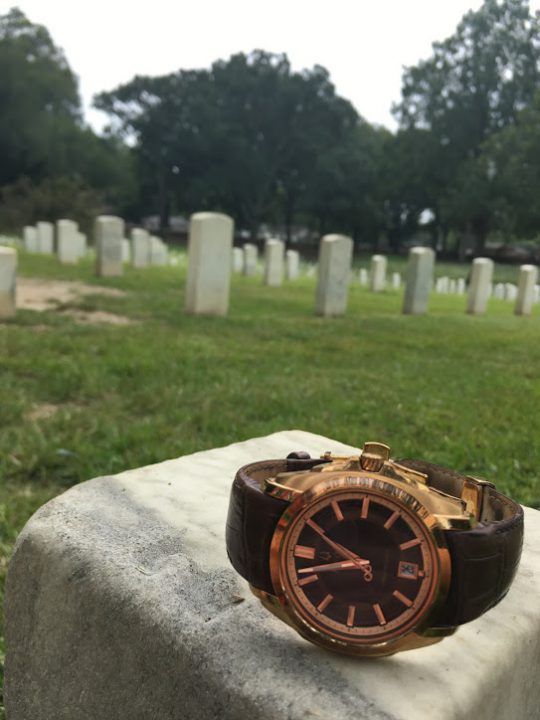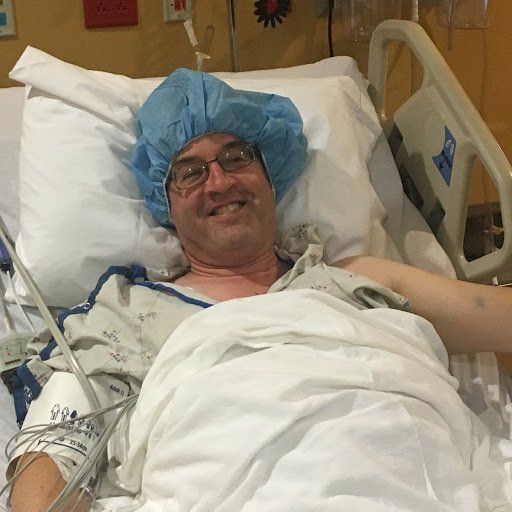Last Writes

Christmas was my wife’s Nanaw’s holiday. She didn’t consider it done properly without presents. The price of the presents was irrelevant - stocking stuffers were fine, but if you didn’t pick out or make something for your family, you weren’t doing Christmas properly and were getting out of it without investing time into each other. This was unbearable. When she was too weak to go shopping she paged through catalogs and sent her grandchildren out to stores to fetch presents for her. To consider Christmas stressful and commercial was to miss the point and do it incorrectly. Christmas was a gathering, a thankfulness, a joy. And if you didn’t see it that way she would pout until you pretended to. Life was not kind to her. Her mother was one of seven children - six girls and a boy who died young. Nanaw’s grandfather died before all of his girls were grown. The world wasn’t gentle to single women with children and work was hard to find. They worked in cotton fields, leaving the house while it was still dark to work all day, the smaller girls dragging bags of cotton bigger than they were. It was with this earthy determination that Nanny raised Nanaw. In the cotton fields, in empty houses, in churches miles from their home, and in the silence of their own hearts. A buoyant, happy girl with more boyfriends than we know the names of, Nanaw never suffered from lack of heart. She left her mother and father to go to typing school, got homesick, and came back. Her people were more important than a future she wasn’t sure she believed in. She met her husband while he was still in the army and they wrote letters until he was home for good. When the youngest of their three children was still a toddler, Nanaw got home from church to find her own father dead in the kitchen, a victim of a self-inflicted gunshot wound after years of depression. When her children were grown and married, she returned home from work to find her husband on the floor, dying from an aneurysm. She packed a bag and took it to the hospital for when he came home. But he never did. She opened doors and death awaited. Her mother grew weaker and weaker and began to suffer from Alzheimer's - sometimes living in another world entirely, forgetting where she was, what year it was, and what reasons she had for still living. She finally slipped away altogether, Nanaw sitting beside her. When Nanaw herself began to slip into the memory loss that slowly smothered her own mother, she began calling us. Every day. Many times a day. Usually to tell us she didn’t have our phone number and wasn’t sure how to get in touch with us. She worried about her people. She worried that no one would answer, and that the next door that opened would reveal tragedy. But there were no more tragedies for her. Only for us. And now we open doors to find the rooms empty. We took a box of snapshots up to her room at the nursing home and asked her who they all were. Images of people we didn’t know, couldn’t recognize, didn’t remember, who lived for us only in her mind. We knew that once she was gone, they died with her. Some of them were family - aunts and uncles and cousins, long dead or moved away. Then my wife would show her one of a young man standing next to an old truck and she would say “Oh I didn’t know him. He delivered milk. I just thought he was cute.” Or a picture of a boy we didn’t know and had never seen before and she would say “Oh he was my boyfriend.” Who were these strangers that lived in her head? That she carried in her heart until the day she died? They lived, for us, only in her. And now they are gone forever. I fear that someday she, too, will be gone forever, shrinking with each generation until there is nothing left of Nanaw but a name and a picture of a lady with ostentatious, gaudy jewelry. Christmas reminds me of this. Of the shrinking. Our beloved dead growing smaller and smaller. But it is not true. They grow larger. Their influence becomes more important. Their actions, their beliefs, their stories, become part of us, informing our lives and our decisions. She lives on in my unwitting daughters, who reach for shiny jewelry and exult in stacking their arms with bright, cheap bracelets without consideration of public opinion. Christmas is a door we open with trepidation every year, because for those of us who have lost someone, it opens to tragedy. A fresh death every time we remember. Some years, especially the first after a death, sorrow squirms close, leaning in nearer than the hope that sustains us. We are overwhelmed with mourning. Their absence touches everything. Sometimes there are large pieces of them left over - maybe they already bought gifts, or prepared food, or sent cards. It makes their absence less real and more painful at once. Life is a relentless assault of grief against our hope. Days that were strongholds of love become overtaken by the enemy, become losing battles in a war against despair. And that’s ok. Some battles you lose. But they are not the end. There is hope. There is always hope. Because any world that creates a holiday out of the hope for peace and joy is a world worth living in. May we be truly thankful - now and always - for love strong enough to be felt as grief. Remember that you are never alone and never forgotten.

The olive tree is sometimes called immortal. It’s not, of course - we call it immortal because it lives so much longer than we do and seems to spring back from terrible hardship and adversity without negative effects. We call it immortal for another reason, though perhaps unconsciously - the famous story of Elijah and the Unnamed Widow, who survived starvation through the miraculously unemptied jug of olive oil. Continually replenished, the jug was refilled as it was used - always enough for one more meal. And yet even that eventually dried up - we have no reason to believe that buried in the dirt in what used to be Zarephath is a jug with some oil in it that will never be emptied. But we have every reason to believe that there are still groves of olive trees to provide the oil. I own a pen that is made from an olive tree that grew in Bethlehem, the birthplace of the only thing to touch Earth that is truly immortal. The only source that will never dry up, and the only tree tall enough to gather the world under its branches for shelter. When I use it I’m reminded of immortal hope, eternal faithfulness, and a love that never dies. Isaiah 40:8 - The grass withers and the flowers fade, but the word of our God endures forever. Romans 8:37-39 - In all these things we are more than conquerors through him who loved us. For I am sure that neither death nor life, nor angels nor rulers, nor things present nor things to come, nor powers, nor height nor depth, nor anything else in all creation, will be able to separate us from the love of God in Christ Jesus our Lord.

We all say goodbye differently. On June 28, 2005, Michael Murphy, a US Navy SEAL, was killed in action in Afghanistan. He was awarded the Medal of Honor for his actions, which were recorded in the book and movie Lone Survivor. Mike was an enthusiastic participant in CrossFit before his death, and on August 18, 2005, one of his favorite workouts was renamed in his honor. From that day on, “Murph” has been done in his memory - often on Memorial Day or on the anniversary of his death and twice in the worldwide Games competitions. There was a gentleman in our community who was known for handing out strips of Juicy Fruit gum that he had torn in half. You never encountered the man without leaving half a stick of gum richer. Before his funeral, we tore sticks of gum in half, put them in a bowl, and set the bowl by his casket. We all say goodbye differently. I’ve seen congregations chant responses during a funeral mass. I’ve seen a SWAT team take a knee before a casket and shout the Lord’s prayer. I’ve seen 21 gun salutes and moments of silence. I’ve heard a church full of people sing “I’ll Fly Away”. I’ve seen families throw themselves over caskets. I’ve heard Mothers and Fathers wail. I’ve seen a community ride together to a crematory to usher their dead to the fire. I’ve seen family and friends sit up all night with their dead. I’ve seen graves filled by hand by truck light. I’ve watched balloons become a speck in the sky after their graveside release. I’ve seen a brother rip hair out of his head to drop onto the dirt. A CrossFit workout done on the anniversary of a man’s death, given his name. Pins slammed into wooden caskets. Handmade quilts draping the pews of a church. A final round of applause. A bowl of Juicy Fruit gum sticks, torn in half, at the head of a casket. Jewelry laid on the dead. Liquor slid into the casket unbeknown to the mourners. An arrangement of flowers shaped like a pack of cigarettes. Bagpipes, taps, Psalms, Freebird. We all say goodbye differently. But we all say goodbye.

We come to Easter now in memory of a miracle. But the women who went to the tomb weren’t expecting a miracle. According to Luke, they went to anoint the body with spices - they were expecting sorrow. They didn’t go to the tomb in faith. They went to the tomb overwhelmed with grief. Sometimes we are told that miracles happen when we go looking for them, and that may be true. But thankfully, God’s miracles aren’t limited by our unbelief. They show up in the darkness, when we don’t have the faith left to ask for them. Mary Magdalene wasn’t praying to see the risen Christ. God brings light to the darkness whether we ask for it or not. You cannot stop the joy any more than you can stop the sun from rising. Even the darkest corners of your home will warm in the sun - the deepest part of your basement will be affected by the day. Burrow under blankets and turn on the air - the earth will warm around you and the sun will rise on the evil and the good - the rain fall on the just and the unjust. It’s all well and good to expect a miracle - to pray for something and believe it will come to pass, and to hear platitudes from well-meaning Christians when our prayers seem unanswered. Nowhere does the Bible say the disciples prayed for Jesus’ resurrection after the crucifixion. The remaining eleven don’t even seem to have been involved in his burial. A previously-unmentioned Joseph went and asks for the body and places it in a tomb. The disciples scattered - afraid, confused, and disappointed. Even when the women came preaching the resurrection, the eleven didn’t believe it. Even faced with the empty tomb they remained confused and afraid. Even when Mary saw him she didn’t recognize him. But he still rose. He met them on the sea. He found Mary in the garden. Someday, your darkness will be the memory of a miracle. Your sorrow will be transformed into victory, and you will celebrate the darkest hours of your life, just like we celebrate Good Friday. Let the darkness swallow you if it must. Let the doubt fill you. The sun will rise. The miracles will come. It’s only Friday. Sometimes we just have to wait for Sunday.

Nothing really changes.
Two thousand years ago, in the days following Christ’s crucifixion, a confused Simon Peter dealt with the darkness engulfing his life in the best way he knew how. He went fishing.
He returned to the place where he met Jesus to begin with, and where he saw Him best. It was on the shore, mending his nets, where Peter first spoke to Christ; it was on the water where Christ proved he could meet Peter in a way he understood – catching fish. It was on the water that Peter witnessed power in the way most personal to him – on the sea, in a storm. He watched the sea still at Christ’s voice, stepped on waters he had fished for years, felt himself go under only to be saved by Jesus’ hand. And when He died, that’s where Peter returned – to waters he had seen stilled, where a storm had been silenced, hoping to silence the storm in himself. Once again returning to the sea as he was going under, hoping to be rescued.

Most of you reading this are aware of the Southern custom regarding funeral processions: when a funeral procession comes by, if at all possible, oncoming traffic pulls to the side of the road as a gesture of respect. I’ve seen this done when it would be safer for all involved to forgo the practice for the moment, but on the whole it’s a beautiful acknowledgment of grief. It signifies our collective sorrow at a death, the community of humanity, and the need for others’ support. It speaks to our awareness of others, and our acknowledgment of their situation.

This weekend Magnolia Funeral Home commemorates twenty-five years serving Corinth and the surrounding areas.
This kind of business has no luxury of hope – when your loved ones come to us earthly hope is past. Our work holds no promise of healing – when we are with you true healing has already come. All of us live in the valley, in the shadow, but it’s been our privilege for the last twenty-five years to help light the path through it for you.

I walked in a home to carry the dead away. The owner’s dish from breakfast sat in his sink, unwashed. He ran out of time to take care of it. His books sat on his shelves. His clock ticked on, running. But his time came.
The walls are lined with pictures – many of them old. Happy times – or times that pretended to be happy. Children. Parents. And neighbors waiting outside whisper to me “the kids won’t be here. They’re estranged.” So I look at the wall of pictures of people he doesn’t speak to. Whatever the grudge, the time for mending has passed. His pictures on the wall are just more things. Things he placed in his home so carefully – centering them on the wall and running a dust rag over the tops often enough to keep cobwebs away. They are still clear and clean. He has so many. But the things that matter, the things that aren’t things. They aren’t here.

Memory after surgery is spotty – I remember bits and pieces of the evening after waking up from having my chest cracked open and new passageways added to my heart. But I remember my older kids coming to see me that evening. They had been there through the whole surgery, but I don’t remember that.
I remember before – being in the room and all of us pretending we weren’t concerned, that we weren’t worried, that this was routine. But it wasn’t. Routine doesn’t get your spouse, your kids, your brothers, your father all up before 6 in the morning to come to the hospital to see you for thirty minutes before you’re wheeled back into an operating room. Routine doesn’t keep everyone sitting in a waiting room outside the SICU halls, doing the mundane things life is made of with the idea in the back of their minds that their mundane lives might never be the same after today.

We often hear the expression “you can’t take it with you”. While this is technically true, you can fix it so that nobody else gets it either. I’ve buried thousands of dollars worth of jewelry before. I never know if it’s by the wishes of the deceased or as a comfort to the family – whatever the reason it is forever consigned to the grave. Taking valuables to the tomb isn’t a new idea – Egyptian pharaohs were famously buried with anything they could possibly need to live comfortably in the afterlife under the assumption that it would travel with them into the realm of the dead. Their bodies were mummified and their organs preserved for the same reason – it was expected that they would need them after death. Some of you are probably thinking that burying valuables doesn’t make any sense to you, that you’d want your family to be able to get some use out of the things you leave behind – in the same way that you work to build a business or a home or a bank account for your children. But no matter how you are buried you still take valuables to the grave. What if I told you that a few years ago a research scientist developed what he believed to be a cure for heart failure. That early testing proved extraordinarily promising. That the only complete formula for the cure was kept in his possession at all times. That he died suddenly – tragically – and ordered that the formula for the medicine be buried with him and that it hasn’t been used since. Outrageous right? And yet it happens every day. The dead take their organs to the grave, robbing the living of another chance at life. The tragedy of one lost life becomes the tragedy of two. Tragedy, however, isn’t necessary to make a difference. You don’t have to die to save a life. Those who are medically able can donate blood many, many times throughout their lives. Some of you may have the means to give to lifesaving groups like St. Jude and Doctors Without Borders. But however we live, we all know that someday we will die. And when we die there are even more opportunities to save and enrich lives – through the donation of your organs, tissues, skin, eyes, bones – do not make the mistake of thinking you are ineligible because of medical conditions or age. That may not be the case. No matter what your decision is about organ donation, talk to your family about it. If you choose to be an organ donor, make sure they know that’s what you want. Let the conversation make a place for a discussion about the end of your life and what your wishes are. Your family may not feel that they will be able to grieve if they commemorate your death the way you initially think you want it handled – this is an important conversation where everyone should be able to voice their concerns. I have seen families crushed because they either didn’t know how their loved one wanted to be remembered or felt that their loved one wouldn’t like the way the family felt drawn to grieve. Maybe you would like to have a small ceremony but your family thinks that a larger celebration would better enable them to move forward – or the other way around. Maybe you would like to donate your organs but your family would find that very traumatic – or maybe it’s something you hadn’t really considered but that your family would find a rewarding way to ensure that you are not forgotten. Either way it is a discussion that needs to be had. Make realistic decisions and make sure everyone is on the same page. Organ donation is a commitment from many people – from the individual who gives, with their dying breath, for another’s life. From the deceased’s family – to know that they send their loved one to the grave in pieces. From me, as a funeral director – to ensure that the body is prepared in a way that will provide the grieving family with closure, despite the trauma of removal. From the organization responsible for the donation process – to make sure that all individuals involved are respected. Let the discussion about organ donation be a broader one about survival, about grief, about dying, and about valuing life. Death should not be a silent, looming certainty at the end of all of our journeys. Let it be an inspiration – the impetus for our greatest achievements. It does not have to be the end. Think of the people you love most in the world: your wife, your son, your grandchild, your mother. Now imagine that their life could be saved by organ donation – for some of you that requires no imagination, it is an ever-present reality. If you could save their life after your own death, I’m sure none of us would hesitate to do so. But because we are removed from the lives of many who need our help, it is easy to ignore the need – to make no decision at all, and to allow 22 people a day to die waiting for a transplant. If either of my daughters, or my son, needed a kidney, I would be at the doctor within an hour of their diagnosis to find out if I were a match. I would consider it no sacrifice to have a kidney harvested from my body and transplanted into my child’s if it would save their life. But what if it were something I couldn’t give them – a heart? They would sit on a list with greater than 117,000 others, waiting. What would I give up for the list to shrink so that they would be more likely to receive the help they needed? You are the cure. In the past twenty-five years I have buried several donors. Often the families of the donors can meet to grieve and rejoice with the families of the recipients – to understand how seemingly senseless, terrible death can lead to new life. More often I have buried people on the list. People waiting. People who died hoping for a miracle – for more donors. And none came. I bury people who could have donated organs in the morning and people who needed the organs in the afternoon. The majority of us are in favor of organ donation and speak highly of the people who do it – we honor their sacrifice and admire their commitment to life. But how many of us are actually registered. How many of us have told our families to donate whatever they can at the moment of our death. Even surrounded by death it’s not an easy decision to make; not making a choice is simpler. I am not faced with the despair of need every day. I am not on the list. This morning I visited the official organ donation website. I had a conversation with my wife. And I registered as a donor. I pray to God my children will not need to be one of the eight lives saved by my death. But someone else’s will be. I am not on the list of those who hope. I am on the list of the ones they hope for. You have a choice to make about how you are buried. You can take one of two things to the grave with you: a lifesaving cure, or death itself. Bury only death. Bury only one life. For more information, and to sign up to be a donor, visit the official Organ Donation website here: https://www.organdonor.gov/index.html Registering there will route you to your state’s organ donation website; it will take about five minutes.

